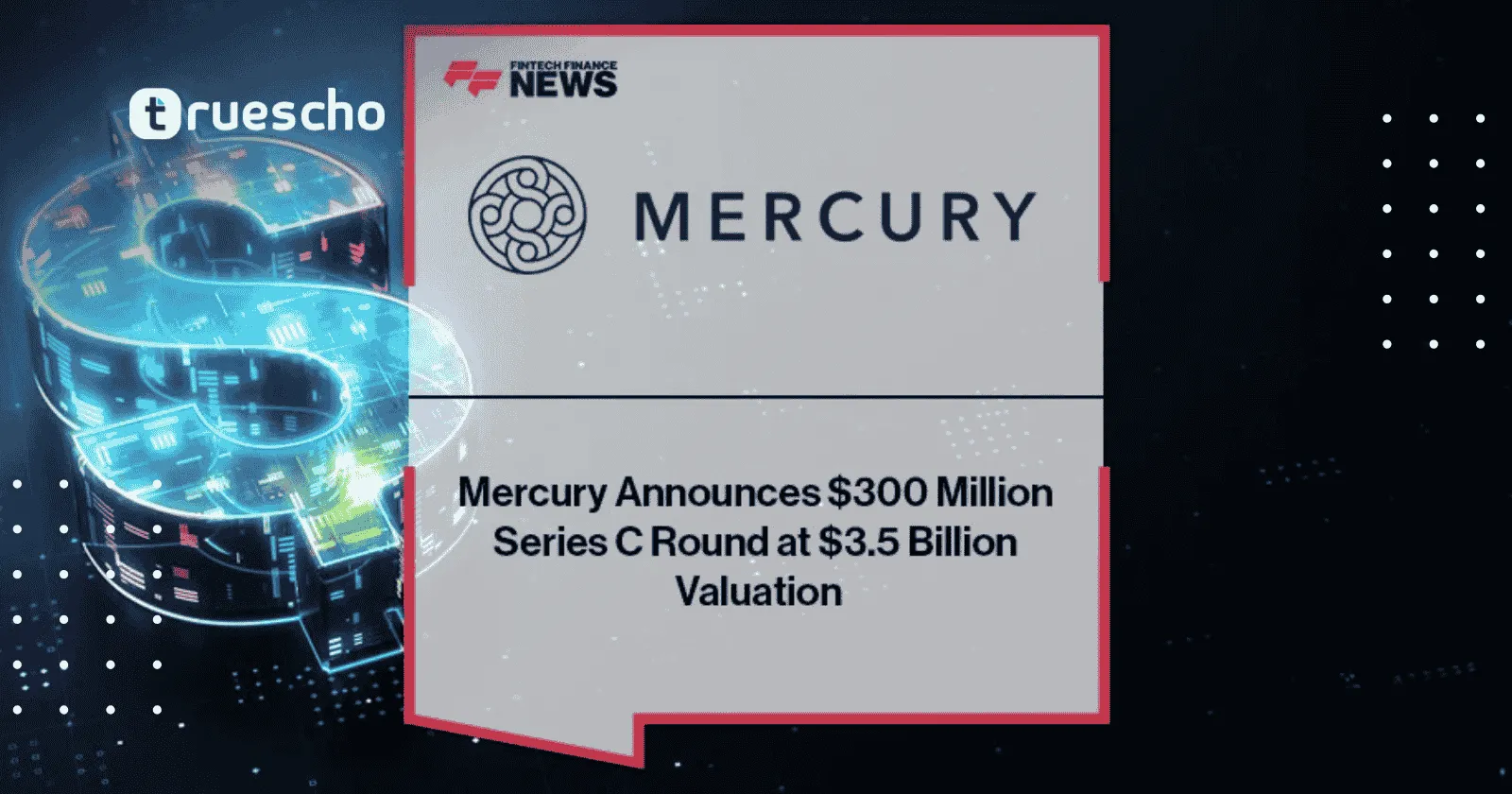Fintech Mercury lands $300M in Sequoia-led Series C
Fintech Mercury has secured $300 million in its latest Series C round, elevating its post-money valuation to an impressive $3.5 billion. This milestone highlights the rapid growth and strong investor confidence in Fintech Mercury as it continues to reshape the digital banking landscape.
With this funding, Fintech Mercury aims to expand its product offerings, enhance its banking infrastructure, and solidify its position as a leading force in the fintech sector. As competition intensifies, Fintech Mercury remains focused on delivering innovative financial solutions tailored to modern businesses.
Read also: Amazon Alexa Fund is now backing AI startups
Table of Contents
Fintech Mercury Secures a Landmark $300M Funding
The recent Series C round brought in $300 million through both primary and secondary funding, with the bulk being new capital. This new valuation more than doubles the company’s standing from its last capital raise—a Series B round that valued Mercury at $1.62 billion after raising $120 million in 2021 (read more here).
Leading the round was Sequoia, marking its first investment in Mercury since its inception in 2017. The round also featured ongoing support from Coatue, CRV, Andreessen Horowitz, along with new backers including Spark Capital and Marathon. Overall, Mercury’s total funding now stands at $500 million.
Key Players and Robust Growth
CEO and co-founder Immad Akhund confirmed that the overwhelming majority of the $300 million came as primary funding, although the specific breakdown was not disclosed. The company also plans a broader employee tender offer in the near future.
Mercury’s momentum is further underscored by its financial performance—with $500 million in revenue documented for 2024 and a streak of 10 consecutive profitable quarters on both EBITDA and GAAP net income. The startup currently serves over 200,000 companies, reflecting a robust 40% year-over-year customer growth. Additionally, payment volumes have soared by 64% to reach $156 billion.
Its clientele is diverse, ranging from tech innovators like Linear, Phantom, and ElevenLabs, to venture capital firms, e-commerce businesses, and a wide array of small enterprises.
Read also: NA10 MCP Agent Update
Innovations and Future Initiatives
Beyond securing funding, Mercury continues to innovate its suite of financial products. The launch of its first corporate credit card in 2022 and the enhancement of its bank accounts—enabling customers to pay bills, manage invoices, and reimburse employees—have bolstered its competitive edge in the fintech sector.
Looking ahead, Mercury is gearing up to introduce a consumer banking product later this year. The new capital is also fueling plans for strategic acquisitions and a ramp-up in hiring, as the team grows from 850 currently to over 1,000 employees by 2025.

Challenges and Strategic Shifts
Like many startups, Mercury has navigated its share of challenges. The company previously faced complications with partner bank Evolve Bank & Trust and BaaS provider Synapse. In March, Mercury decided to cut ties with Evolve, migrating its customers to other banking partners—a move that has helped stabilize its operations.
Read also: AI Is coming to the classroom
Final Thoughts




